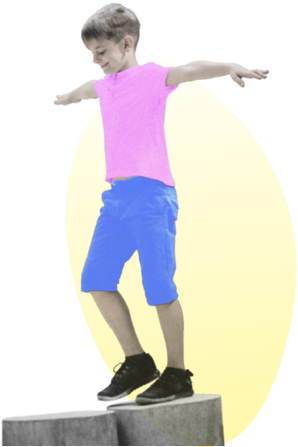Autism Evaluations for
Children & Teens
What Is Autism Spectrum Disorder?
What are signs of autism spectrum disorder?
Understanding thoughts and feelings of others (Ignore or misinterpret how others may feel or act in different situations)
Expressing Feelings (may appear cold or distant, or lack emotional expression altogether; black and white thinking)
Changes in routine or transitions (lack of flexibility or emotional dysregulation when aspects of the daily routine are challenged, such as sitting in a different spot or having a new teacher or sports schedule)

Expressing Feelings (may appear cold or distant, or lack emotional expression altogether; black and white thinking)
Reading social cues (facial expressions, standing too close or too far from others, ignoring signs of frustration or boredom, and difficulties reading others’ body language)
Sensory difficulties (Clothing texture, loud noises, bright lights, crowds, and feeling too hot or sweaty)
What happens before the autism evaluation?
Parents receive an invitation to our secure, electronic patient portal containing:
- Questionnaires related to your child’s medical and educational history, social development, and any emotional/behavioral concerns
- A section for releases of information to connect with other providers on your child’s team
Our team reviews these documents to tailor questions and testing sessions to unique concerns pertaining to your child/teen’s development and referral questions.
We send parents standardized rating scales to assess your child or teen’s functioning across home and school settings (i.e., adaptive functioning, attention/concentration, social skills, mood, anxiety, and more).
What happens during testing sessions for autism?
Our multidisciplinary testing for autism includes:
Clinical observations, direct testing, and communicating with your child or teen.
Evaluation sessions include:
working directly with a licensed psychologist and occupational therapist who have expertise in administering and interpreting batteries related to autism who collaborate in your child’s care.
Our team uses the ADOS-2, a gold-standard measure for autism, along with other evidence-based measures, to provide the most accurate diagnosis and rule in or out the presence of other conditions.
Testing sessions may seem play-based during the administration of the ADOS-2, and other parts of the testing session may feel like “brain games” where we are looking at cognitive abilities.
What happens after my child’s autism evaluation?
Our licensed psychologist and occupational therapist work as a team to score, analyze, interpret and write up data from the evaluation process in a written report with user-friendly actionable steps for ongoing care and support.
A final feedback session will be scheduled with parents to go over results from the written report and to discuss recommendations and providers in or outside of our clinic who can offer proper support.
We will talk with you about sharing results with others involved in your child’s care (i.e., learning specialists, medical providers and specialists, occupational therapists, speech-language pathologists, and other therapists).
We can schedule a time to meet with you and your child’s team at school to help create an IEP (public schools) or Individualized Learning Plan (private schools) if desired.
How is Autism Treated?
- Speech therapy to help with talking and language skills.
- Occupational therapy to help with everyday tasks, like dressing and playing.
- Behavioral therapy to help improve behavior.
- Social skills training to help with relating to others.
- Special education to help learning.
- Medicine to help with things like sleep, paying attention, and hyperactivity.
We're here to help!


